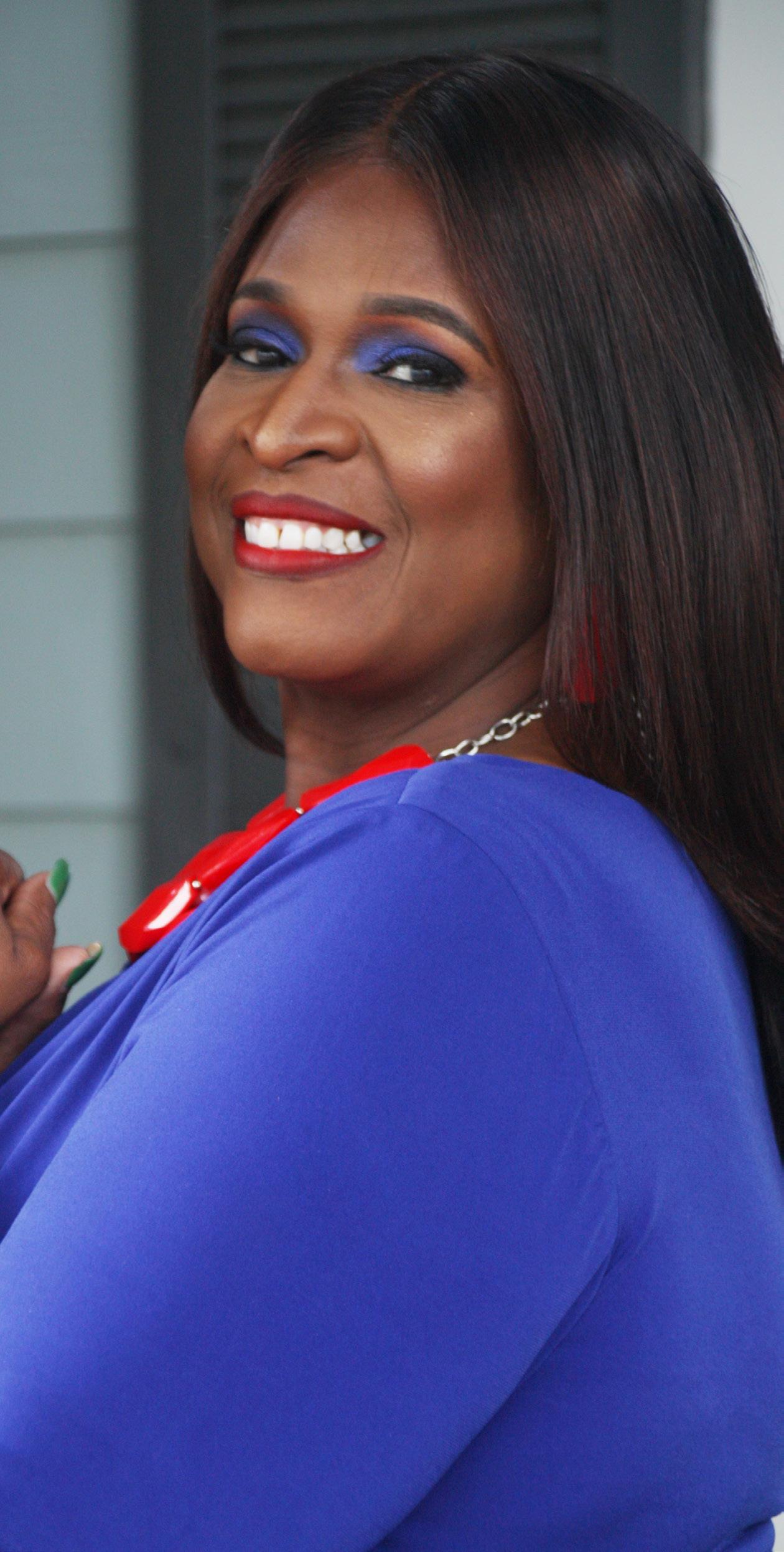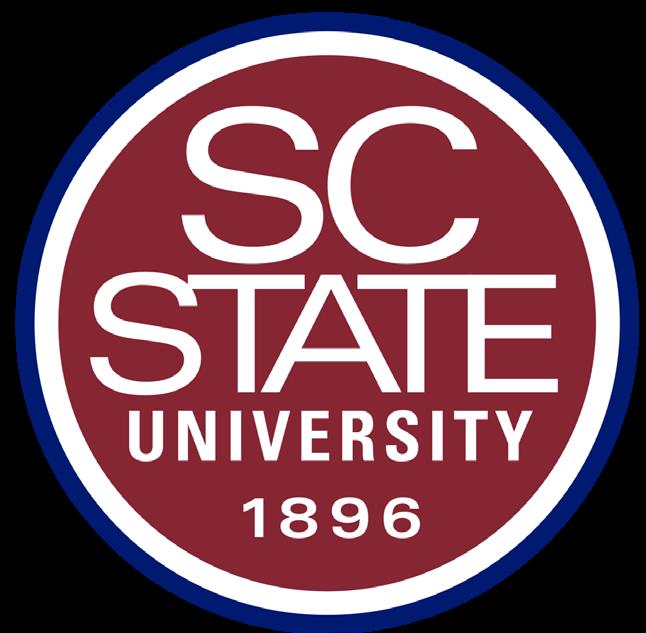
7 minute read
FACULTY SPOTLIGHT: SARAH PRIESTER
from HBCU Times Magazine
by HBCU Times
FACULTY SPOTLIGHT: SARAH PRIESTER COMPOSITION PEDAGOGY FOR THE STUDENT-READY HBCU’S

Imagine Frederick Douglass as a student in today’s HBCU composition classes. Would these classes produce the same kinds of well-crafted writings we so proudly applaud today? Would today’s instruction meet the tremendous demands of his needs? Furthermore, would this instruction catapult him into the prolific writer he ultimately became? Such lofty possibilities can be realized but only if our HBCU composition classes operate as student-ready classrooms. So, what exactly is a student-ready classroom? To understand this concept, a student-ready college must first be understood. The book, Becoming a Student-Ready College: A New Culture of Leadership for Student Success, uses the language student-ready to mean practices that “ensure student success by working strategically and holistically to advance students by reversing perspectives on college readiness and working tirelessly to educate all students…..” (McNair, Tia, et al. 5). This idea challenged institutions to ask new questions: Rather than asking, “Are students ready for college?” The real question should be, “Are colleges ready for students that are coming to them?” In the same manner, compositionists should ask themselves if they are indeed ready for the students entering their classrooms. Are their composition classes ready to bear the deficiencies most students bring to college? Are they capable of addressing and eradicating those “marked disadvantages,” that Douglass so poignantly used to define his circumstances? One may but imagine the possibility of student-ready pedagogy eliminating the weaknesses of Frederick Douglass especially after witnessing his amazing transformation. He evolved from a weak, incapable writer to an eloquent, effective communicator. By implementing this revolutionary idea, along with other effective strategies, the legacy and future of our HBCU’s are sure to be preserved.
Like the priceless instruction Douglass received, today’s composition classes can produce competent, authoritative writers when the tradition of student-ready instruction is adopted to meet the very real needs of all students.
Here is what that instruction looks like: Since success comes from consistently practicing good habits, composition instruction should habitually incorporate embedded tutoring and justin time support (Remediation: Higher Education’s Bridge to Nowhere 2012). Just as highly effective people practice good habits, effective compositionists practice the habit of organizing their classes into three distinct sections, sections that navigate students through the learning cycle to address and meet their needs. Let’s call these sections the pre-learning, learning, and post-learning stages.
During the pre-learning stage, time is spent (approximately ten to twelve minutes) addressing and eliminating deficiencies revealed through diagnostic testing. Embedded tutoring in the form of mini lessons is designed to give deliberate attention to these deficiencies. Weaknesses in grammar, mechanics, content/ development, voice, and organization, just to name a few, can be eliminated if this technique is properly engaged. This is also an excellent time to address Praxis Core grammar skills in a focused, strategic manner for Education Majors. Consider the limited time young Frederick had with his playmates. Think about the enormous risks he took to learn; mini lessons were obviously effective and efficient in laying the foundation he would later build upon.
Now, let’s look at the learning stage of the student-ready composition classroom. Here, students get a panoramic view of the specific goals and objectives they will acquire during the lesson. Skilled instruction in the “nuts and bolts” of composition writing, for example, is delivered during this time. This stage, line upon line, shows students “how to compose” rather than just asking them “to compose.” Custom templates and organizers are used to ensure the transfer of knowledge. Interestingly, this practice and process, along with an innovative, didactic writing song (Composition Writing Song 2018) became affectionally known as Guardrails, Guidepost, Training Wheels, and Things of That Nature, a model developed to meet the needs of underprepared first-year composition students.
This expert instruction, unfortunately, is only one-half of what stellar composition pedagogy looks like. Until students use composition writing as a tool to successfully analyze literary masterpieces, their abilities of “marked proficiency” is yet to be achieved. The “marked deficiency” of effectively writing to analyze literature challenges the very integrity of the legacy we wish to create in our beloved HBCU’s composition classes. To eliminate these deficiencies and preserve an admirable legacy, student-ready composition class must be taken into serious consideration.
To help students write well about literature, consider this strategy: After a thorough discussion of the literature through spirited lectures and active participation, students should be required to complete a guided reading organizer. This organizer requires students to respond to a piece of literature using the three levels of reading: literal, inferential, and evaluative. A critical reading activity of this nature supports critical thinking and builds intimacy with the text, two dynamics needed to write authoritatively. This process can be extended through assigned literature circles for additional, intimate, social time with the text. These student-led discussions are held outside of class. Personal connections made with the text empower students to write in ways that are organic to them. In addition, professors are highly encouraged to provide students with samples of various rhetorical modes such as argumentative, comparing / contrasting, cause/effects, and expository essays. These sample writings act as guideposts to model expectations for writing about literature. This strategy is known as the cheat sheet. We see this strategy in Douglass’s early learning stage of writing. When he saw two sailors on a ship that docked, he offered his assistance. He paid keen attention to the letters that the sailors marked on the lumber. He mimicked the form of those letters again and again. He practiced on walls, fences, and anything he could write on. He extended this learning by challenging his peers to a game to see who could write the best. Using the training wheels method of constantly forming letters, creating ingenious strategies to extend learning, and engaging heart-felt convictions about his state as a slave, Douglass fueled the very skills needed to evolve as a great writer. Practice, proven strategies, and intimate knowledge of a subject are exactly what student-ready compositionists provide for their students’ successful writing experiences.
Lastly, the post-learning stage is where students are given thoughtful opportunities to share and reflect on what they gained from the pre-learning and learning stages of the learning cycle. Just as Frederick Douglass gave an intimate view of his journey and personal experiences, students should be able to verbalize or document what they learned from their instruction. This reflective time is key for both students and instructors as it provides valuable feedback necessary for planning.
With these practices, techniques, strategies, and shifts in perspectives, the legacy and future of HBCU’s and their composition courses will be preserved with dignity and grace. Not only would this experience produce writers of whom Frederick Douglass himself would be proud, but it would also produce overwhelming joy when considering the journey and step by step process of these well-trained writers. He would have all the more reasons to declare, “if there is no struggle; there is no progress.” Student-ready composition classrooms are a sure way to make exceptional progress through this nurturing writing process. These classes would be considered the supply that satisfies the demands of our students. Is being student-ready the way to go? I certainly believe so.
Sarah Priester is a passionate instructor of English Composition and Communications at South Carolina State University, Orangeburg, S.C. She is dubbed the “learning strategist” as she has distinguished herself as a pedagogical practitioner. She skillfully trains students to “learn how to learn”. After obtaining a bachelor’s and master’s degree in English Education and Secondary English Education from South Carolina State University, she spent several years perfecting her craft while serving the middle and high schools of her community. During this time, she honed skills in critical reading and writing. This period of growth and development laid the foundation for a career in educational consulting. Presenting at conferences, leading staff developments, conducting teacher trainings, developing learning models, and coaching for professional exams are key areas where Priester’s high energy, highly engaging, and personable skills are be experienced. After creating the writing workshop, Guardrails, Guidepost, Training Wheels and Things of That Natures” doors of great opportunity opened. She is currently a Ph.D. student at the University of South Carolina pursuing a doctorate in English with an emphasis in Composition and Rhetoric.
HBCU













